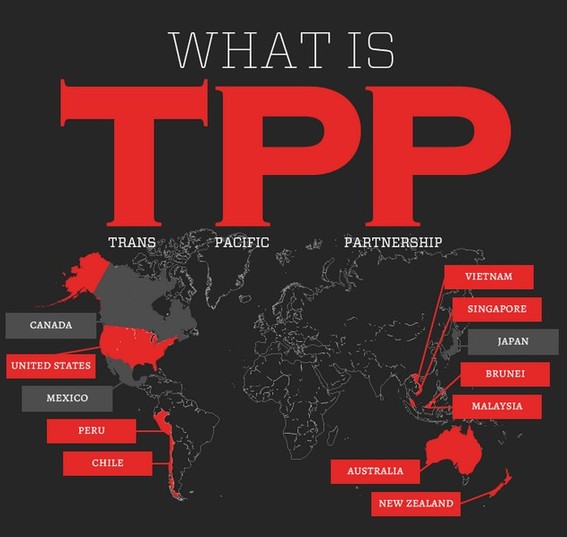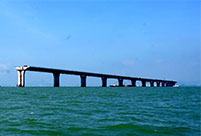


(File photo)
US Trade Representative Michael Froman announced on Monday that 12 Pacific countries "have successfully concluded" Trans-Pacific Partnership (TPP) trade talks. This means that the TPP has made tangible breakthrough after week-long negotiations. Although merely a basic agreement, it has generated heated discussions in China, with some people even believing that the TPP may overwhelm the Chinese economy.
The TPP includes 12 partner countries. It covers 40 percent of the global economy, the scale of which exceeds that of the EU. Although China's isn't part of it, many see the TPP as a balance to China's rising global clout.
Is the TPP really targeting China? US President Barack Obama said on Monday, "we can't let countries like China write the rules of the global economy. We should write those rules, opening new markets to American products while setting high standards for protecting workers and preserving our environment."
This is not the first time that Obama expressed such views. This seems to prove that the US-led TPP is aimed at China. Objectively speaking, some TPP partners want to use the agreement as leverage against China. But it's not surprising that geopolitical considerations mingle with economic relations.
The question is to what extent these TPP partners can achieve their goal. It is generally believed that a free trade agreement can bring extra trade volume to partner countries while adversely affecting non-partner countries. The TPP is likely to have an impact on China in a short term, but its importance may be overblown. The TPP is only a regional agreement. Each of the 12 countries has a different development level. Although the US said the pact will have new members, the TPP will have limited vitality without the participation of the world's second largest economy.
The world economy has been deeply interdependent. China is the largest trading partner for many nations involved in the TPP, including Japan, Singapore and Australia. China is also second largest trading partner of the US. Beijing has signed FTAs with Seoul and Canberra. Unilateral containment of China, a difficult task, will also backfire.
Mutual benefit and win-win cooperation has been increasingly regarded as a realistic consensus, a path that the TPP will very likely choose in the future. China hasn't ruled out the possibility of joining the TPP either. It will be not easy for the TPP to be accepted as a global trade standard. In areas such as agriculture, intellectual property and medical patents, Washington stresses its own interests. A responsible superpower should lead by example and advocate fairness. Concealing selfishness with so-called loftier goals is self-deception.
The TPP will not dictate global trade rules, judging by the agreement. It can at most boost Washington's influence in trade. Washington has repeatedly said it cannot let China write the rules. But it is clear what the rules will be under its dominance. The decline of US global leadership is partly caused by its way of setting rules.
The TPP is not an opportunity China cannot miss. Any global trade framework will not be perfect without China's participation. We have nothing to be insecure about.
 Top 10 nominated designs at BJDW
Top 10 nominated designs at BJDW Fashion show staged in Forbidden City at night
Fashion show staged in Forbidden City at night Construction of HK-Zhuhai-Macao Bridge enters final stage
Construction of HK-Zhuhai-Macao Bridge enters final stage Model of heavy-lift copter makes debuts at Tianjin expo
Model of heavy-lift copter makes debuts at Tianjin expo Art photos of Chinese beauty in Han Chinese clothing
Art photos of Chinese beauty in Han Chinese clothing Stunning photos of air show in China’s V-Day parade
Stunning photos of air show in China’s V-Day parade Models change clothes on street in Hangzhou
Models change clothes on street in Hangzhou Charming Chinese female soldiers
Charming Chinese female soldiers Beauty vs. muscular man
Beauty vs. muscular man Rising to the challenge
Rising to the challenge Rand report echoes Cold War mind-set, overstates threats
Rand report echoes Cold War mind-set, overstates threats Inland nuke plants crucial to energy future
Inland nuke plants crucial to energy future Communist confrontation
Communist confrontationDay|Week